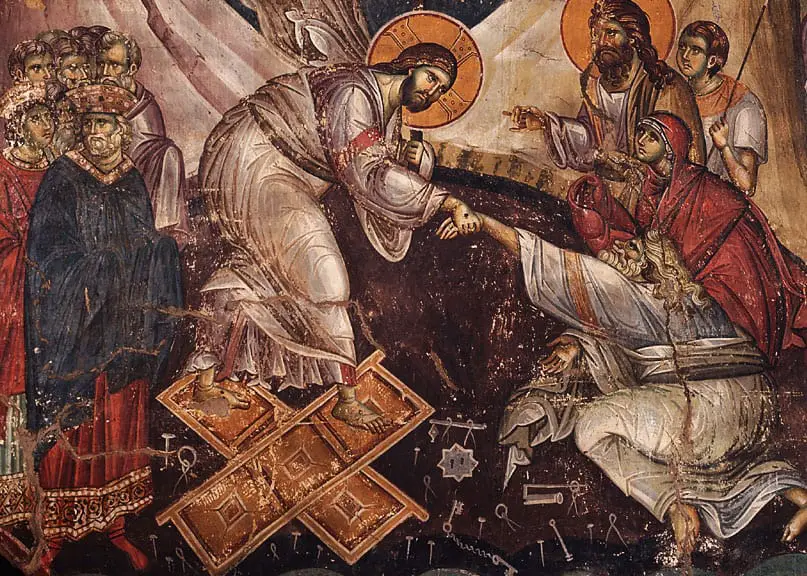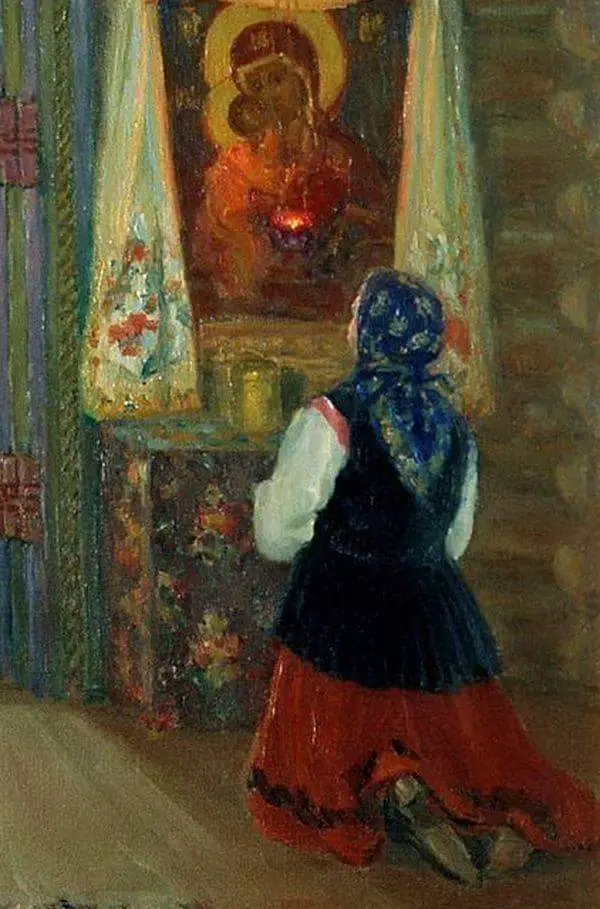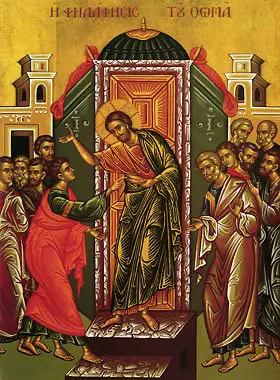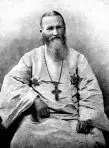“But Thomas, one of the twelve, called Didymus, was not with them when Jesus came. The other disciples therefore said unto him, We have seen the Lord. But he said, Except I shall see in His hands —I will not believe.”
As to believe carelessly and in a random way, comes of an over-easy temper; so to be beyond measure curious and meddlesome, marks a most gross understanding. On this account Thomas is held to blame. For he believed not the Apostles when they said, “We have seen the Lord”; not so much mistrusting them, as deeming the thing to be impossible, that is to say, the resurrection from the dead. Since he saith not, “I do not believe you,” but, “Except I put my hand—I do not believe.” But how was it, that when all were collected together, he alone was absent? Probably after the dispersion which had lately taken place, he had not returned even then. But do thou, when thou seest the unbelief of the disciple, consider the lovingkindness of the Lord, how for the sake of a single soul He showed Himself with His wounds, and cometh in order to save even the one, though he was grosser than the rest; on which account indeed he sought proof from the grossest of the senses, and would not even trust his eyes. For he said not, “Except I see,” but, “Except I handle,” he saith, lest what he saw might somehow be an apparition. Yet the disciples who told him these things, were at the time worthy of credit, and so was He that promised; yet, since he desired more, Christ did not deprive him even of this.
And why doth He not appear to him straightway, instead of “after eight days”? [John 20.26] In order that being in the mean time continually instructed by the disciples, and hearing the same thing, he might be inflamed to more eager desire, and be more ready to believe for the future. But whence knew he that His side had been opened? From having heard it from the disciples. How then did he believe partly, and partly not believe? Because this thing was very strange and wonderful. But observe, I pray you, the truthfulness of the disciples, how they hide no faults, either their own or others’, but record them with great veracity.
Jesus again presenteth himself to them, and waiteth not to be requested by Thomas, nor to hear any such thing, but before he had spoken, Himself prevented him, and fulfilled his desire; showing that even when he spake those words to the disciples, He was present. For He used the same words, and in a manner conveying a sharp rebuke, and instruction for the future. For having said,
“Reach hither thy finger, and behold My hands; and reach hither thy hand, and thrust it into My side” [John 20:27] He added, “And be not faithless, but believing.”
Seest thou that his doubt proceeded from unbelief? But it was before he had received the Spirit; after that, it was no longer so, but, for the future, they were perfected.
And not in this way only did Jesus rebuke him, but also by what follows; for when he, being fully satisfied, breathed again, and cried aloud, “My Lord, and my God,” [John 20:28]. He saith, “Because thou hast seen Me, thou hast believed; blessed are they who have not seen, and yet have believed” [John 20:29] For this is of faith, to receive things not seen; since,“Faith is the substance of things hoped for, the evidence of things not seen” [Hebrews 11:1]. And here He pronounceth blessed not the disciples only, but those also who after them should believe. “Yet,” saith some one, “the disciples saw and believed.” Yes, but they sought nothing of the kind, but from the proof of the napkins, they straightway received the word concerning the Resurrection, and before they saw the body, exhibited all faith. When therefore any one in the present day say, “I would that I had lived in those times, and had seen Christ working miracles,” let them reflect, that, “Blessed are they who have not seen, and yet have believed.”
+ St. John Chrysostom, Homily LXXXVII, Homilies on the Gospel of St. John










